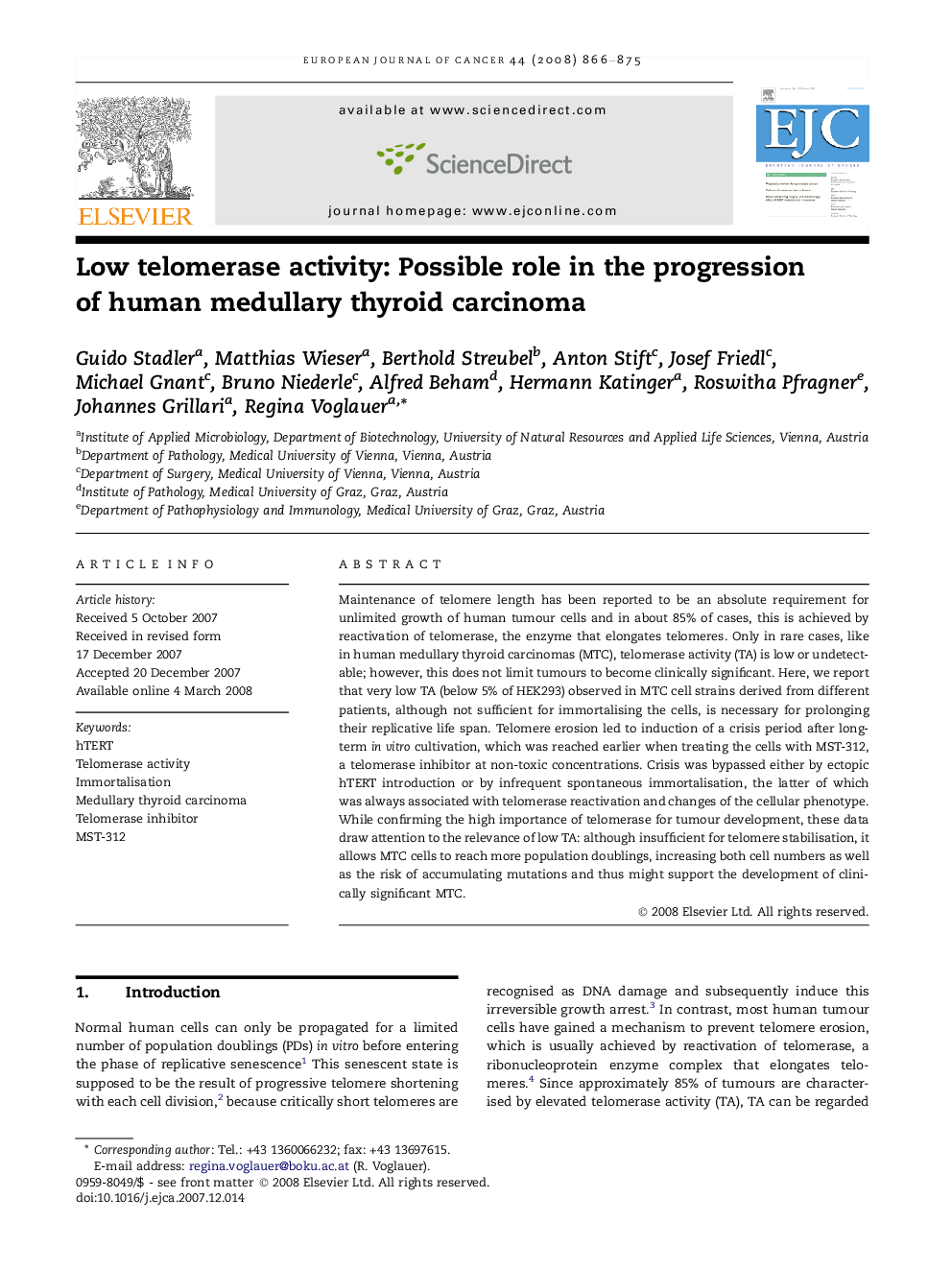| Article ID | Journal | Published Year | Pages | File Type |
|---|---|---|---|---|
| 2125789 | European Journal of Cancer | 2008 | 10 Pages |
Maintenance of telomere length has been reported to be an absolute requirement for unlimited growth of human tumour cells and in about 85% of cases, this is achieved by reactivation of telomerase, the enzyme that elongates telomeres. Only in rare cases, like in human medullary thyroid carcinomas (MTC), telomerase activity (TA) is low or undetectable; however, this does not limit tumours to become clinically significant. Here, we report that very low TA (below 5% of HEK293) observed in MTC cell strains derived from different patients, although not sufficient for immortalising the cells, is necessary for prolonging their replicative life span. Telomere erosion led to induction of a crisis period after long-term in vitro cultivation, which was reached earlier when treating the cells with MST-312, a telomerase inhibitor at non-toxic concentrations. Crisis was bypassed either by ectopic hTERT introduction or by infrequent spontaneous immortalisation, the latter of which was always associated with telomerase reactivation and changes of the cellular phenotype. While confirming the high importance of telomerase for tumour development, these data draw attention to the relevance of low TA: although insufficient for telomere stabilisation, it allows MTC cells to reach more population doublings, increasing both cell numbers as well as the risk of accumulating mutations and thus might support the development of clinically significant MTC.
